DUBAI: The UAE will take global center stage for the next six months — the duration of Expo 2020 Dubai, the extravaganza of business, technology, connectivity, and sheer showbiz that will finally get underway at a lavish opening ceremony on Thursday.
There is no doubt the expo will raise the profile of Dubai and the UAE while it is on, but in order to justify the billions of dollars that have been spent on it by the government and private sector, the policymakers expect there will be a long-term economic “legacy.”
The organizers have long recognized this and have been seeking to highlight the expected permanent shift in economic conditions ever since the UAE won the right to stage the event in 2013.
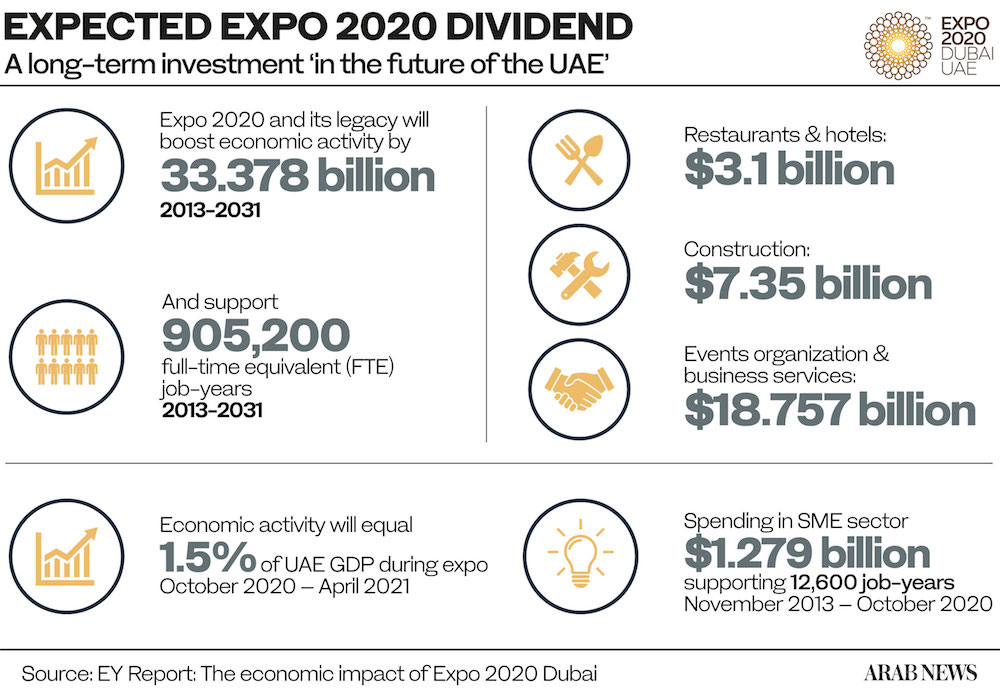
The so-called expo effect has been a constant feature of economic commentary about Dubai and the UAE, in what has been labeled the discipline of Exponomics.
The message from the organizers is that expo means, “investing in a resilient, long-term future for the UAE economy. Expo’s capital expenditure will spur wider economic impact in key sectors including construction (such as facilities and infrastructure development, and international participant pavilions), transport, storage, and communications, as well as travel, tourism, hospitality, and business services.”
Extra investment by Dubai authorities in transport, utilities, and other infrastructure will enhance economic growth in the long term, while small businesses and sustainable enterprises will also get a boost from the event.
n particular, the exhibitions and conferences industry — already a major money-spinner for Dubai — will move to the next level with the creation of the Dubai Exhibition Center and District 2020 for holding big international forums.
Expo will accelerate the UAE’s efforts to diversify its economy, support the growth of a knowledge economy and smart connectivity, as well as provide a stimulus for cultural and creative life, officials said.
Putting some hard economic and financial figures on those strategic economic policy goals has been made more difficult by the COVID-19 pandemic. In 2019, global consulting firm EY produced an assessment of the economic impact of the expo.
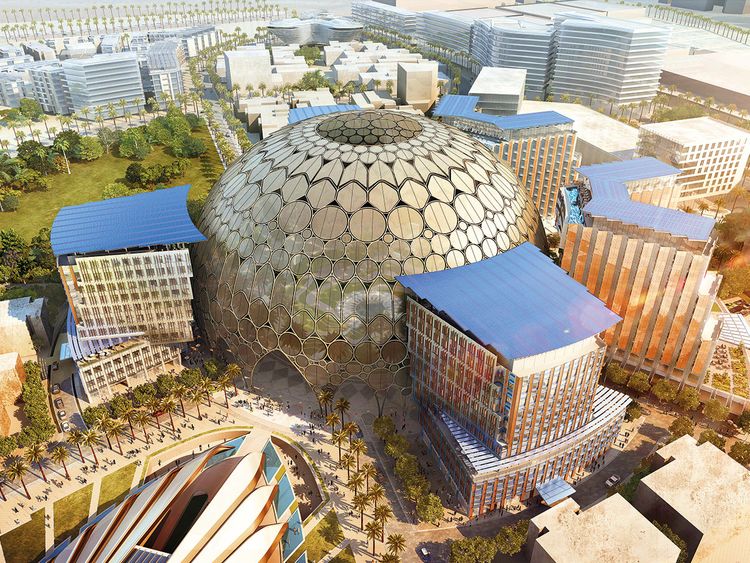
For Dubai, which thrives on global connectivity and travel, there was a big incentive to open up the economy as soon as possible after the COVID-19 pandemic. (Supplied)
“Expo 2020 Dubai and its legacy are expected to contribute 122.6 billion Emirati dirhams ($33.4 billion) of gross value added to the UAE’s economy from 2013 to 2031,” EY said, specifying a 1.5 percent boost to annual gross domestic product during the six months of the event, and tens of thousands of new long-term jobs created.
Critically, EY expected the event to attract 25 million visits from 190 countries, of whom 70 percent would come from outside the UAE.
Matthew Benson, EY partner, said: “Expo 2020 is an exciting long-term investment for the UAE, and is expected to have a significant impact on the economy and how jobs are created directly and indirectly.”
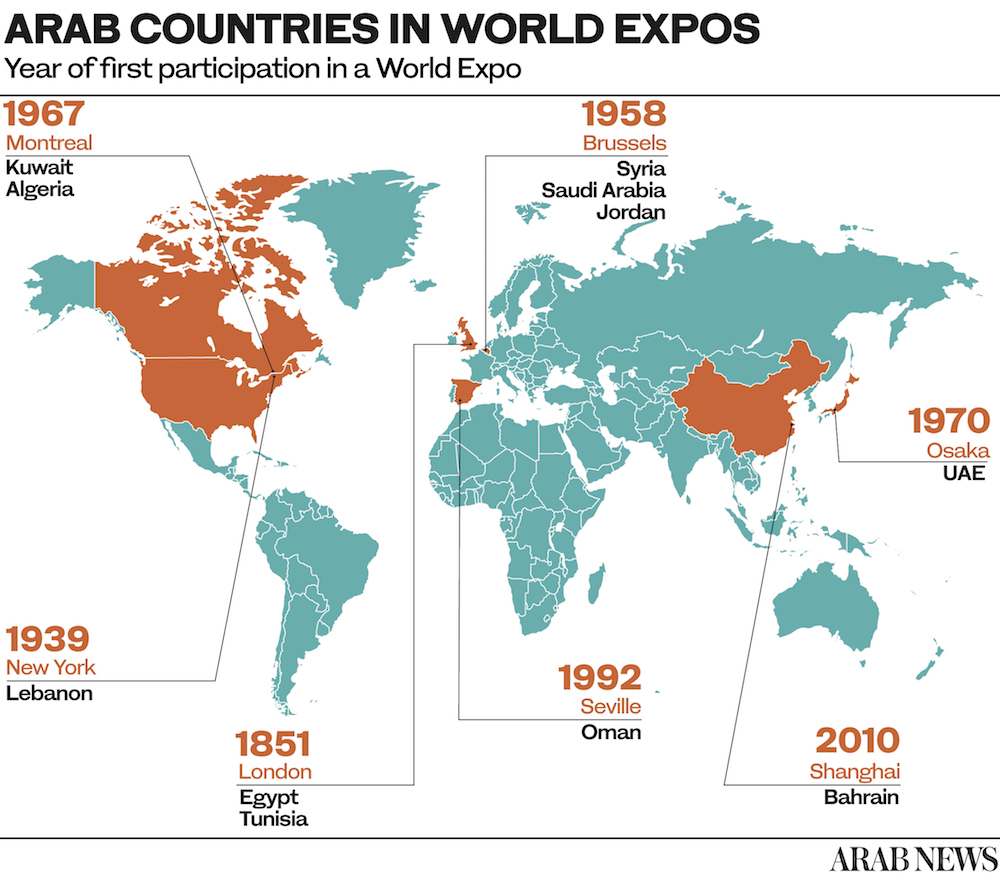
It is not known whether EY has updated its forecasts to take account of the most severe economic recession in decades in 2020, but independent economists are taking a rather more cautious view of the long-term economic legacy.
“The 25 million expo visits may be a tad too optimistic during an ongoing pandemic,” Nasser Saidi, a regional economics expert and Lebanon’s former economy and industry minister, told Arab News.
But he recognizes the achievement of staging the event at all after such an unprecedented slowdown in travel, trade, and tourism during 2020.
“Little did anyone envisage the scenario within which the expo would eventually take place,” he said. “Expo 2020 will be the first global mega-event to be held permitting physical entry of visitors, after the Tokyo Olympics went ahead without spectators.
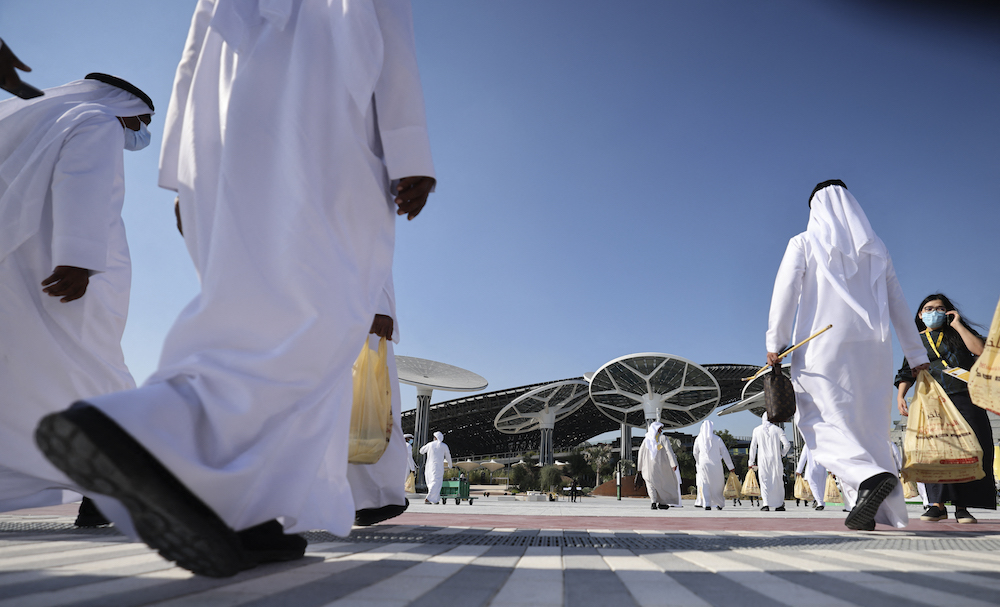
People walk towards the Sustainability Pavilion, a week ahead of its public opening, at the Dubai Expo 2020 in Dubai on January 16, 2021. (AFP/File Photo)
“A successfully run event will boost Dubai’s and the UAE’s image as a global frontrunner in safely hosting large-scale events during the pandemic era. The expo will act as a stepping-stone for potential investors to buy into Brand Dubai and move businesses and families into the country.”
For Dubai, which thrives on global connectivity and travel, there was a big incentive to open up the economy as soon as possible, with the first tentative steps toward reopening taking place last summer and accelerating as the UAE’s COVID-19 vaccination campaign gathered pace.
The UAE has now given the vaccine to a greater percentage of its population than any other country in the world and has been rewarded by new optimism in the strength of its economic recovery.
The International Monetary Fund said recently that the UAE economy would grow by 3.1 percent this year, a dramatic turnaround from the 6 percent plunge in 2020. The expo will be a big contributor to that.
James Swanston, Middle East economist at London-based consultancy Capital Economics, pointed out that Expo 2020 would be a “welcome boost” to Dubai’s economy, especially in the vital tourism-related sectors.
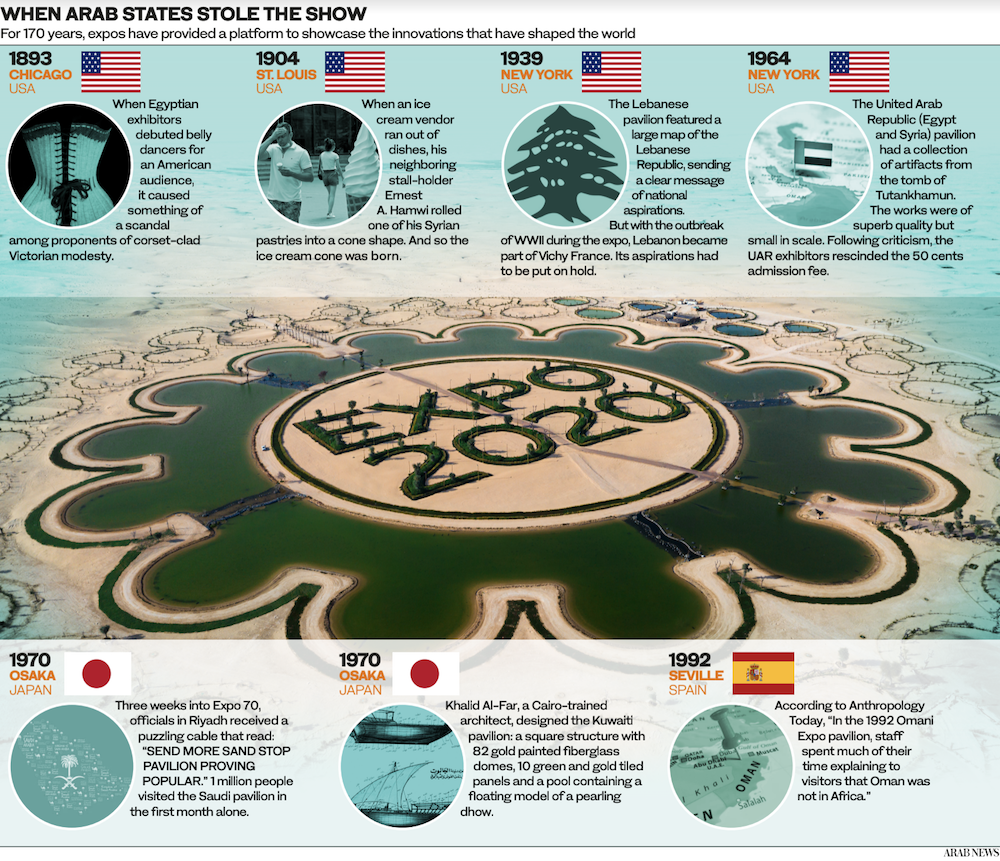
He said: “Around a third of GDP is made up of sectors like hospitality and wholesale and retail trade, and the latest figures show that GDP contracted 10.7 percent year-on-year in the first half of 2020. More timely data points to a slow recovery. Tourist arrivals were just a quarter of their pre-pandemic level in the first half of 2021.
“Dubai has pinned its hopes on the expo to boost its attractiveness as a destination for tourists and expatriate workers. On top of targeting 25 million visits to the expo itself, the authorities have set lofty ambitions of 23 to 25 million tourist arrivals to Dubai by 2025, which would make it the most visited city in the world – for context, 16.7 million tourists visited Dubai in 2019.”
Swanston noted that officials also hoped that one in 20 visitors to the expo would decide to reside in Dubai permanently, which would imply a near-term population increase of roughly 10 percent for the UAE as a whole.
Such considerations are especially relevant for UAE real estate, which is in the early stages of recovery from a sluggish property market that began in 2014 and still remains below that level.
Whether these targets will be met at Expo 2020 still remains to be seen. Staging such a huge event is a costly and demanding exercise, although no detailed up-to-date figures on the actual cost are available from the organizers.
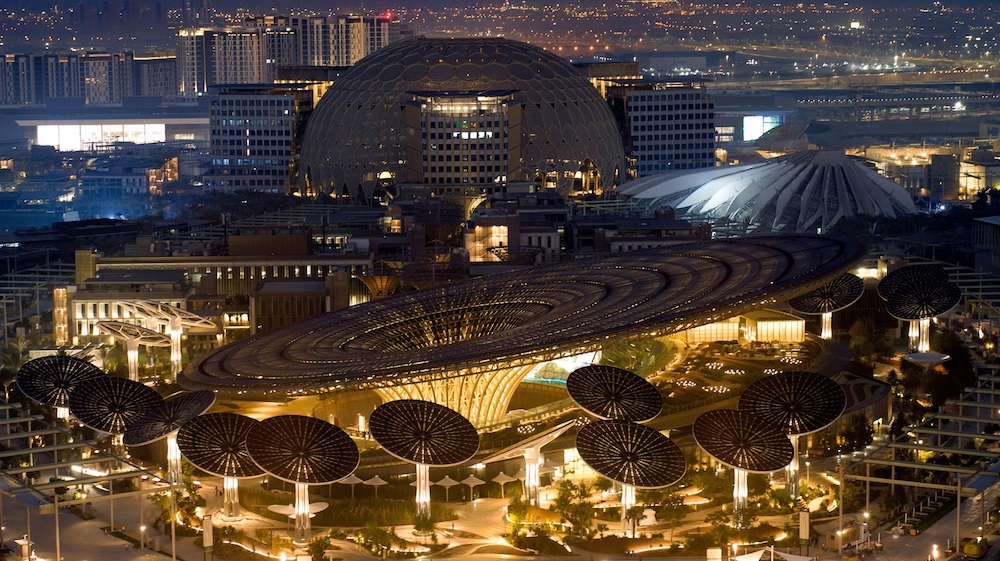
Staging such a huge event is a costly and demanding exercise, although no detailed up-to-date figures on the actual cost are available from the organizers. (Supplied)
“Hosting such mega-events is usually found to be a strain on country or city budgets,” Saidi said.
“The economic case for hosting such events is based on the increase in economic activity, the rise in tourists and spending, building the intangible Dubai brand, as well as other qualitative and social impacts, like strengthening trade and business with global counterparts.
“Plus the feel-good factor, which is more important during a pandemic when trying to return to normal.”
That sentiment seems to be the consensus among “Exponomics” experts: The UAE is to be congratulated for staging the first mega-event of the post-pandemic era, with actual people, and will only enhance its reputation over the coming six months.
“The direct financial impact on the Dubai economy may be subdued by the pandemic,” Tarek Fadlallah, chief executive officer of Nomura Asset Management in the Middle East, told Arab News. “But it will leave a lasting impression on its reputation and economic development.”
-------------------
Twitter: @FrankKaneDubai






















